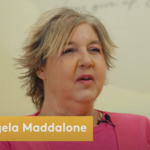Medically Reviewed by: Dr. Bautista
Our Editorial Policy
Updated on: November 16, 2019
About Breast Cancer
Breast cancer forms in tissues of the breast. The most common type of breast cancer is ductal carcinoma, which begins in the lining of the milk ducts (thin tubes that carry milk from the lobules of the breast to the nipple). Another type of breast cancer is lobular carcinoma, which begins in the lobules (milk glands) of the breast. Invasive breast cancer is breast cancer that has spread from where it began in the breast ducts or lobules, to surrounding normal tissue. Breast cancer occurs in both men and women, though male breast cancer is rare. After cancer diagnosis, medical treatment programs vary and can include both holistic cancer treatment options such as ozone therapy or more invasive conventional cancer treatment therapies like surgery, chemotherapy, or radiotherapy.
Types of breast cancer include:
- Ductal carcinoma in situ (DCIS)
- Infiltrating ductal carcinoma (IDC)
- Infiltrating lobular carcinoma (ILC)
- Inflammatory breast cancer (IBC)
- Invasive / infiltrating breast cancer
- Lobular carcinoma in situ
- Male breast cancer
- Medullary carcinoma
- Metastatic breast cancer
- Mucinous carcinoma
- Paget’s disease
- Papillary carcinoma
- Triple-negative breast cancer
- Tubular carcinoma
Breast cancer is a disease that commonly develops within the ducts that transport milk to the nipple, or in the lobules, but can also arise throughout the entire breast. Most forms manifest in breast cancer patients as lumps or tumors that can be felt in the breast and are often removed in surgery. Unlike many other forms of cancer cells, breast cancer is fairly easily detected and treated in the early stages, particularly due to mammogram screening.
Common forms of breast cancer include:
- Adenocarcinoma – The most common type of breast cancer found in the glands of ducts and lobules.
- Paget disease of the nipple – A rare cancer that forms in the ducts of the breast and spreads to the areola and the skin of the nipple.
- Inflammatory breast cancer – An invasive form of cancer that is only found in a small percentage of women with breast cancer.
- Angiosarcoma – An exceedingly rare type of breast cancer that arises in cells that line blood vessels or lymph vessels.
Within the United States, breast cancer is the most common cancer in women, besides skin cancers, with approximately 12% of women developing it at some point in their lifetime. According to the American Cancer Society, in 2019:
- About 268,600 new cases of invasive breast cancer will be diagnosed in women.
- About 62,930 new cases of carcinoma in situ (CIS) will be diagnosed (CIS is non-invasive and is the beginning stages of breast cancer).
- About 41,760 women will die from breast cancer.
Of these, the median age of patients with breast cancer is 62 years old.
Causes and Risk Factors of Breast Cancer
You might be surprised to discover that the majority of lumps found in the breast are benign, non-cancerous breast tumors, which are not life-threatening. However, with those that are malignant, the cancerous cells can travel and infect the blood or the lymph system. Once this happens, the cancer can easily spread to other areas of the body. In the case that invasive breast cancer cells reach the lymph nodes, this is when the cancer will likely metastasize in other areas of the body.
Breast cancer risk factors include:
- Alcohol consumption
- Breast implants (In rare cases)
- Birth control
- Family history of breast cancer
- Having dense breasts with more glandular/fibrous tissue than fatty tissue.
- Inherited genes, especially mutations in the BRCA1 or BRCA2 genes
- Lack of physical activity
- Not breastfeeding nor having children
- Obesity
- Post-menopause, high risk, hormone therapy
Early Detection, Diagnosis, and Staging
The most common symptoms of invasive breast cancer are:
- A breast lump
- Bloody nipple discharge
- Breast pain
- Flaking on nipple or breast
- Inverted nipple
- Lump or swelling in the armpit
- Mysterious change in the shape or size of the breast
- Nipple discharge that’s not breast milk
- Peeling on nipple or breast
- Red, pitted skin over the whole breast
- Scaling on nipple or breast
- Swelling in parts of or the entirety of the breast
To diagnose breast cancer in a patient, various tests can be accomplished via:
- Breast MRI scans
- Breast ultrasounds
- Elastography
- Electrical impedance imaging
- Mammograms
- Molecular breast imaging
- Positron emission mammography
Stages of Breast Cancer
With the patient’s cancer diagnosis, there are four stages of cancer, but the precise stage depends on a host of factors. Depending on which stage they are in, breast cancer patients may need to consider surgery as a treatment option. The four stages of breast cancer include:
- Stage I
-
- IA: Cancerous breast tumor is larger than 2cm but has not spread to lymph node tissue.
- IB: Small clusters of breast cancer cells are found in lymph node tissue, and/or there is a tumor smaller than 2cm.
-
- Stage II – Cancerous tumor is larger than 2cm and has traveled to 1 to 3 axillary lymph nodes. Or, the tumor is between 2cm to 5cm but hasn’t spread further.
- Stage III – The breast tumor has grown and has spread to the chest wall and/or skin of the breast. At this stage, the cancerous cells may have also spread to a few lymph nodes in the local area.
- Stage IV – Cancer has spread beyond the breast and regional lymph nodes to other distant organs.
About Alternative/Natural Treatment of Breast Cancer
Medical treatment for Breast Cancer typically comprises one or a combination of surgery (such as a mastectomy or lumpectomy), chemotherapy, radiation therapy, and medication to reduce potential recurrence. While these treatments can be effective, they can also come with difficult side effects that can be tiring for you and challenging for your immune system, making it harder to fight off the disease. An alternative treatment for breast cancer offers natural solutions to maintain recovery while regulating side effects from more traditional or conventional treatment options.
Immunity Therapy Center offers a wide range of alternative therapy programs and natural treatments for Breast Cancer. Our team is dedicated to creating a personalized alternative breast cancer treatment plan based on your health and cancer progression. We treat you like a person and want to build a positive relationship through every step of the alternative cancer treatment process.
If you want to learn more about an alternative treatment for Breast Cancer, please contact us today to schedule a free consultation.
Sources
American Cancer Society. How Common is Breast Cancer? https://www.cancer.org/cancer/breast-cancer/about/how-common-is-breast-cancer.html
Vieira, R. NCBI. Alcohol Consumption as a Risk Factor for Breast Cancer Development: A Case-Control Study in Brazil. (2018). https://www.ncbi.nlm.nih.gov/pmc/articles/PMC5980845/
U.S. Food and Drug Administration. Breast Implant-Associated Anaplastic Large Cell Lymphoma (BIA-ALCL). https://www.fda.gov/medical-devices/breast-implants/breast-implant-associated-anaplastic-large-cell-lymphoma-bia-alcl
Kerlikowske, K. NCBI. Identifying Women with Dense Breasts at High Risk of Interval Cancers. (2015). https://www.ncbi.nlm.nih.gov/pmc/articles/PMC4443857/
Breastcancer.org. Breast Cancer Stages. https://www.breastcancer.org/symptoms/diagnosis/staging
Therapies we useAt Immunity Therapy Center, our goal is to provide objective, updated, and research-based information on all health-related topics. This article is based on scientific research and/or other scientific articles. All information has been fact-checked and reviewed by Dr. Carlos Bautista, a Board Certified Medical Doctor at Immunity Therapy Center. All information published on the site must undergo an extensive review process to ensure accuracy. This article contains trusted sources with all references hyperlinked for the reader's visibility.
Customized Care For the Body And The Mind
Discuss Your Custom Alternative Treatment Plan With Our Team Today
Hear from Our Patients
See why the Immunity Therapy Center is a trusted name for medical tourism and cancer treatment centers in Mexico.
FAQ's
Select Topic:- Diseases and Treatments
- Our Mexico-based Center and Team
- Patient Expectations and Experiences
- Costs and Travel Arrangements








